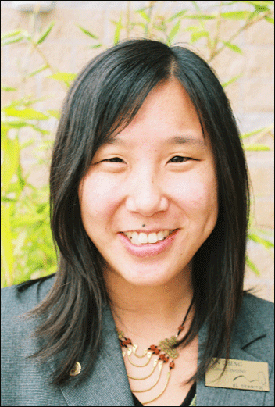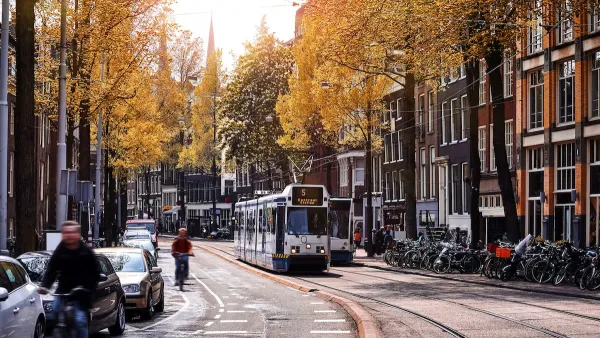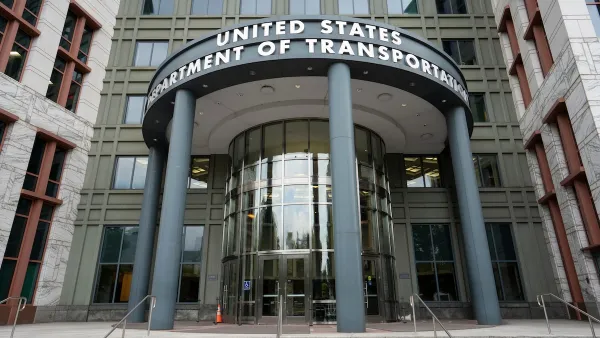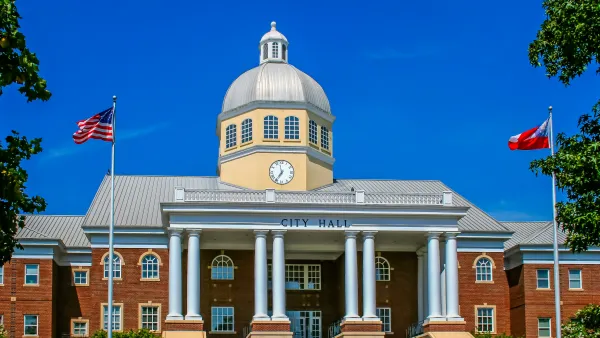Back in 2006, when I was working at Reconnecting America (A non-profit that promotes and studies transit-oriented development), I ended up crossing paths with a dedicated and intelligent woman named Ann Cheng. In her late-20s, she was working for an organization known as the Transportation and Land Use Coalition (they've since gone with the more attractive moniker TransForm).
Back in 2006, when I was working at Reconnecting America (A non-profit that promotes and studies transit-oriented development), I ended up crossing paths with a dedicated and intelligent woman named Ann Cheng. In her late-20s, she was working for an organization known as the Transportation and Land Use Coalition (they've since gone with the more attractive moniker TransForm).
It was an interesting time -- Bay Area residents were slowly awakening to the fact that Northern California had pretty much run out of land to sprawl across, and had to start focusing on infill -- not just in San Francisco, but all around the bay and particularly in midsize towns like Dublin, Vallejo and Redwood City. Environmental groups in particular were stuck in a such an anti-development groove up to that time that getting them to realize that they had to encourage and support dense infill projects was like changing the migration patterns of salmon. Both of our orgs were part of a group called the Great Communities Collaborative that was bringing environmental groups and planning advocacy groups together to give these somewhat reluctant and understaffed towns a push in the right direction.

Riding BART back and forth around the bay, I had several inspiring conversations with Ms. Cheng. She struck me as passionate and practical, and had picked up a lot of knowledge and skills in her brief planning career. She helped develop TransForm's GreenTRIP program, a certification system for residential in-fill strategies to reduce traffic and greenhouse gas emissions. Anne had grown up in nearby El Cerrito, another smallish Bay Area town with 23,000 residents with a BART station to plan around.
In November of 2008, Ann ran for a seat on the El Cerrito City Council and won. Intrigued by her move into politics, I interviewed her for Planetizen's Insider's Guide to Careers in Urban Planning. She told me then that she had truly gotten into planning to "save the world":
I went to an environmental law conference at UC Davis, where a professor said,
"All right kids, if you want to change the world you have to know how local
government works because, at least in California, this is where all the
decisions are made about where things get built, how they get built, or what
doesn't get built."
I'd never
had a professor say point blank, "This is how you change the world."
So I thought, "I'm going to take that to heart and figure out what that means."
This week, Ann was sworn in as the new Mayor of El Cerrito, (and the first Asian-American to hold the post) at the young age of 33. In El Cerrito Patch, she is quoted as saying that her goals in office will "...include continuing the city's current momentum
in reducing El Cerrito's carbon footprint, seeking economic
development, protecting public safety and fostering "smart communities"
that stress environmentally friendly coordination of development around
public transit."
I find Ann's story inspiring in a number of ways. First, she's forged fearlessly into a world predominated by older, white men (local government). But more importantly to me she's learned one of the true lessons of land use -- those who have the power make the decisions. Given what we know as planners, shouldn't it be our duty to forge past the reactionary role and take the reins?
ADDENDUM: Matt Durning was gracious enough to reupload a video interview with Ann during her 2008 run for City Council. You can watch it here.

Analysis: Cybertruck Fatality Rate Far Exceeds That of Ford Pinto
The Tesla Cybertruck was recalled seven times last year.

National Parks Layoffs Will Cause Communities to Lose Billions
Thousands of essential park workers were laid off this week, just before the busy spring break season.

Retro-silient?: America’s First “Eco-burb,” The Woodlands Turns 50
A master-planned community north of Houston offers lessons on green infrastructure and resilient design, but falls short of its founder’s lofty affordability and walkability goals.

Test News Post 1
This is a summary

Analysis: Cybertruck Fatality Rate Far Exceeds That of Ford Pinto
The Tesla Cybertruck was recalled seven times last year.

Test News Headline 46
Test for the image on the front page.
Urban Design for Planners 1: Software Tools
This six-course series explores essential urban design concepts using open source software and equips planners with the tools they need to participate fully in the urban design process.
Planning for Universal Design
Learn the tools for implementing Universal Design in planning regulations.
EMC Planning Group, Inc.
Planetizen
Planetizen
Mpact (formerly Rail~Volution)
Great Falls Development Authority, Inc.
HUDs Office of Policy Development and Research
NYU Wagner Graduate School of Public Service





























